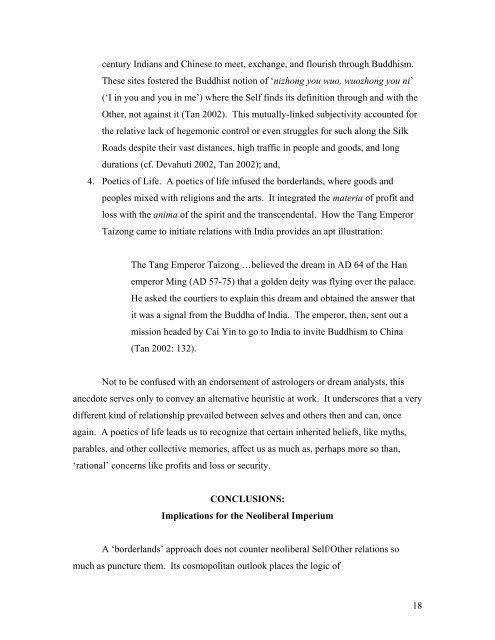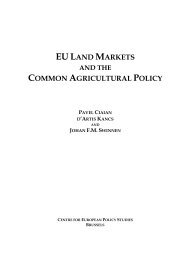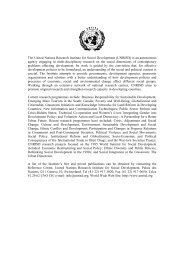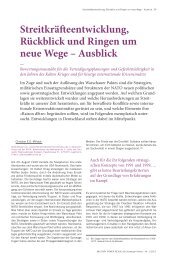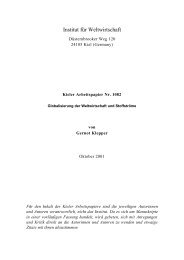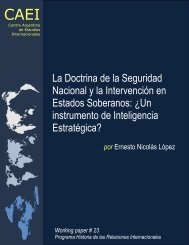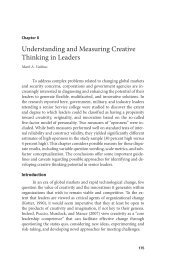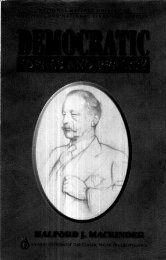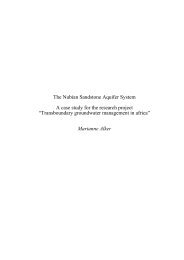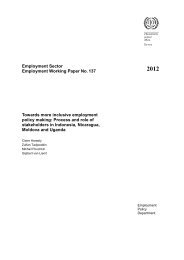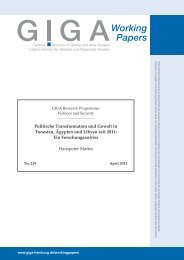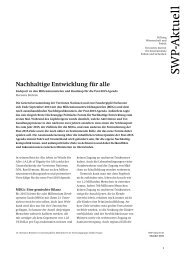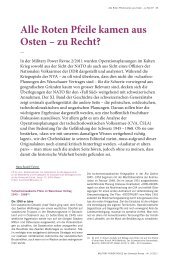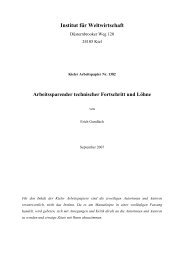A Postcolonial-Feminist Alternative to Neoliberal Self/Other Relations
A Postcolonial-Feminist Alternative to Neoliberal Self/Other Relations
A Postcolonial-Feminist Alternative to Neoliberal Self/Other Relations
Create successful ePaper yourself
Turn your PDF publications into a flip-book with our unique Google optimized e-Paper software.
century Indians and Chinese <strong>to</strong> meet, exchange, and flourish through Buddhism.<br />
These sites fostered the Buddhist notion of ‘nizhong you wuo, wuozhong you ni’<br />
(‘I in you and you in me’) where the <strong>Self</strong> finds its definition through and with the<br />
<strong>Other</strong>, not against it (Tan 2002). This mutually-linked subjectivity accounted for<br />
the relative lack of hegemonic control or even struggles for such along the Silk<br />
Roads despite their vast distances, high traffic in people and goods, and long<br />
durations (cf. Devahuti 2002, Tan 2002); and,<br />
4. Poetics of Life. A poetics of life infused the borderlands, where goods and<br />
peoples mixed with religions and the arts. It integrated the materia of profit and<br />
loss with the anima of the spirit and the transcendental. How the Tang Emperor<br />
Taizong came <strong>to</strong> initiate relations with India provides an apt illustration:<br />
The Tang Emperor Taizong …believed the dream in AD 64 of the Han<br />
emperor Ming (AD 57-75) that a golden deity was flying over the palace.<br />
He asked the courtiers <strong>to</strong> explain this dream and obtained the answer that<br />
it was a signal from the Buddha of India. The emperor, then, sent out a<br />
mission headed by Cai Yin <strong>to</strong> go <strong>to</strong> India <strong>to</strong> invite Buddhism <strong>to</strong> China<br />
(Tan 2002: 132).<br />
Not <strong>to</strong> be confused with an endorsement of astrologers or dream analysts, this<br />
anecdote serves only <strong>to</strong> convey an alternative heuristic at work. It underscores that a very<br />
different kind of relationship prevailed between selves and others then and can, once<br />
again. A poetics of life leads us <strong>to</strong> recognize that certain inherited beliefs, like myths,<br />
parables, and other collective memories, affect us as much as, perhaps more so than,<br />
‘rational’ concerns like profits and loss or security.<br />
CONCLUSIONS:<br />
Implications for the <strong>Neoliberal</strong> Imperium<br />
A ‘borderlands’ approach does not counter neoliberal <strong>Self</strong>/<strong>Other</strong> relations so<br />
much as puncture them. Its cosmopolitan outlook places the logic of<br />
18


